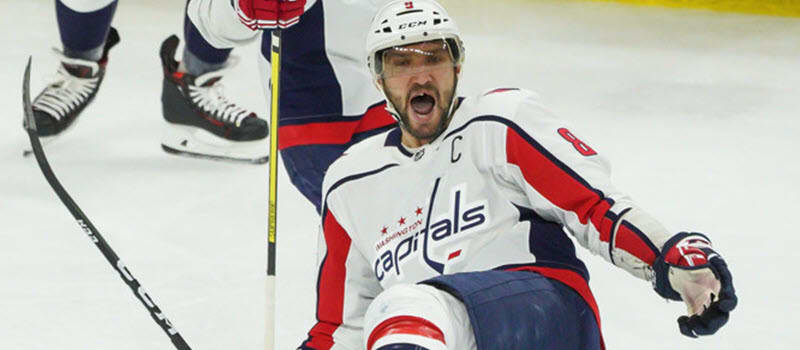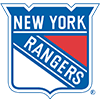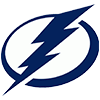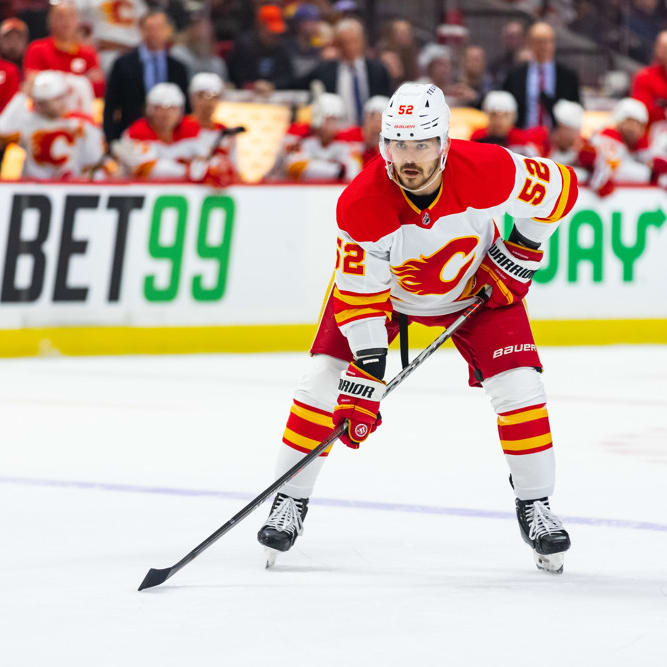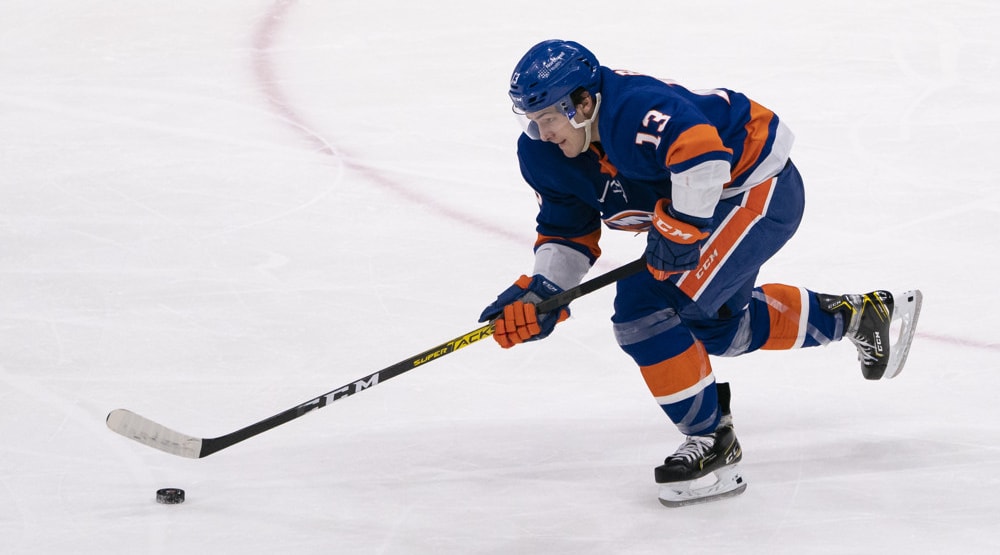Welcome to the 2019-20 RotoWire guide to daily fantasy hockey on DraftKings. For those looking to take your first shots at DFS NHL, this article will dive into some basics of the game, tournament selection suggestions and roster construction strategies.
DraftKings Basics
In the regular formatted games at DraftKings, each roster contains nine players at or under a salary cap of $50,000, with roster spots consisting of two centers, three wingers, two defensemen, one utility and one goalie. A caveat that must be followed at DraftKings is that skaters from three different NHL teams must be selected. Player salaries range from around $8,000 down to $2,500 for skaters, whereas goalies range from around $8,500 down to $6,500.
DraftKings has changed their main scoring format from last year, which means players now score fantasy points (FP) as follows
| Skaters (Centers/Wingers/Defensemen) | Goalies | |
|---|---|---|
| Goal = 8.5 pts | Win = 6 pts | |
| Assist = 5 pts | Shutout = 4 pts | |
| Shot on Goal = 1.5 pts | Saves = 0.7 pts | |
| Blocked Shot = 1.3 pts | Goal Allowed = -3.5 pts | |
| Short Handed Goal/Assist = 2 pts | Overtime Loss = 2 pts | |
| Shootout Goal = 1.5 pts | 35+ Saves = 3 pts | |
| 5+ Shots on Goal = 3 pts | ||
| 3+ Blocked Shots = 3 pts | ||
| 3+ Points = 3 pts | ||
| Hat Trick Bonus = 3 pts | *No points awarded in Shootouts (Goalies) |
Top skaters will earn about 17 FP per game, while the top goalies are roughly in the same range. As in all fantasy sports, the nightly range of scoring can vary greatly, but hockey can even be more drastic. In Basketball, if a player averages 40 FP per game, they are likely a lock to score at least half that (20 FP) unless they get hurt. However, hockey players have a much larger range of outcomes, and even the best players can put up next to zero points on any given night.
For example, Chicago winger Patrick Kane was the highest-scoring skater in the league last year with an average of 17.52 FP per game. However, he had 20 games with fewer than 8.10, which means he scored fewer than half his average more than 25 percent of the time. The point I am trying to make is that scoring in daily fantasy hockey is fickle and can be frustrating at times when paying up for expensive players who do not rack up the stats you expected on a certain night.
Tournament Selection Suggestions
DraftKings offers a wide range of guaranteed prize pool (GPP) tournaments each day with entries ranging from a few pennies to hundreds of dollars. The basic tournament types at the smaller buy-ins are multiple-entry with large fields, highlighted by the daily $20, $12 (single entry) and $3. While these tournaments offer large prize pools and pay out the top 20 percent, they all include many entries (500 to 3000) to maneuver through to hit the big paydays. Playing in these tournaments daily will require a larger bankroll in order to survive the downswings.
One of the lesser-known options is called Leagues, which are non-guaranteed tournaments that are canceled if they do not fill before lineup lock. I enjoy Leagues at the $10 and $5 levels, with 10-20 entries that pay out the top three or four finishers. These leagues do not offer the monster paydays that GPPs do, but you also only have to beat a handful other entries. If these seem more in your wheelhouse, I would suggest entering them early, even the night before, because they need to fill in order to run and sometimes the ones that are posted late do not fill and, therefore, don't run.
There are also multiplier tournaments, most notably the Double Up and 50/50s; these quite simply pay out half (or nearly half) the field a payout of twice (or nearly twice) the buy-in. All you are required to do is finish in the pay out zone and you receive the same prize as the entry that finishes in first place. DraftKings usually offers Triple Up and Quintuple Up options as well; these obviously have the least bankroll swing but also the lowest upside, but the grind-it-out nature suits a lot of players.
Roster Construction Strategies
Because of the weight of the scoring system, goals and assists are not as important as they are on other sites, so racking up shots and blocks can make up for fewer goals and assists to get you to the cash line. When choosing a cheaper defenseman option, for example, you should be targeting players who can give you some shots and blocks with upside of an assist. A goal is worth 5.6 shots or 6.5 blocks and an assist is worth 3.3 shots or 3.8 blocks; this inequity is not quite as pronounced as on FanDuel where the ratio is 7.5:1 for a goal and 5:1 for an assist.
When you are playing in a GPP, stacking an even-strength line on the same team is usually a requirement for a winning lineup, though the salary structure at DraftKings makes this more difficult than on FanDuel. You can mix-and-match parts from nine different teams, but the odds of hitting on all nine guys is low, so the better bet is to try to find the forward line that has multiple goals and, in turn, increases the chances at multiple assists. You are not required to stack lines like this, but it is something I would suggest to newer players until you get more comfortable in mixing up your strategy. Since you have two centers, three wingers and a utility, you can stack two different lines. Another strategy is two-man stacks, where you can stack up to three center/wing combinations due to the utility flexibility.
When you are playing double ups and other cash games, you should mix and match pieces of your lineups more because you do not need to hit big on everyone in order to cash the deep payouts, you are just looking to get solid production across the board.
Another strategy is to stack power-play linemates together, even if they do not all play together on even strength. Even though players do not receive that many power-play opportunities per game, the level of production per minute explodes with the man advantage. Going back to Patrick Kane, he scored nearly 1.7 times more points per minute on the power play than he did at even strength:
Min/Gm | FP/Gm | FP/Min | |
|---|---|---|---|
| Even Strength | 18.8 | 11.59 | 0.62 |
| Power Play | 3.7 | 3.89 | 1.05 |
| *Stats do not include bonuses | |||
These numbers are not to be expected production levels for all players, but it should make it clear that power-play time is extremely important for every player you choose in your lineup, and finding those cheap players who are getting unexpected time on the man advantage can mean money in your pocket. If you are considering a player who is more than $4,000 then they should be on one of the two power-play units, and if they are more than $5,000 I would tend to knock them down a peg if they are not on the top power-play unit.
One of the biggest mistakes newer players make regarding goalies is over-valuing projected wins. Calgary had the second-best record in the NHL last year, winning 50 of 82 games, which is certainly very good from a team perspective, but it also means their goalie failed to record the win bonus nearly 40 percent of the time. When you are working on your lineup(s) for the day, focus on saves and goals allowed; sometimes bad teams allow more shots, and talented goalies on those teams can provide huge save totals. Looking at the six highest-scoring goalies when only factoring in saves and goals allowed, you'll see that three had win percentages under 50 percent.
| Player | FP (SV-GA Only) | Win Percentage |
|---|---|---|
| Andrei Vasilevskiy (TB) | 12.48 | .736 |
| Ben Bishop (DAL) | 12.46 | .614 |
| Robin Lehner (NYI) | 12.03 | .581 |
| Jack Campbell (LAK) | 11.98 | .400 |
| Anton Khudobin (DAL) | 11.73 | .421 |
| Darcy Kuemper (ARI) | 11.71 | .491 |
I am not advocating taking the worst goalie every day, just do it judiciously because there is good value to be had in some of the cheaper options. This is also not a cherry-picked stat, as the 10th, 13th, 15th, 18th, and 19th-highest SV-GA goalies also had lower than .500 win percentages.
As always, use RotoWire.com to gather as much information as you can until lineup lock because many teams shift their lines up game to game, and updates are not reported until midday or even minutes before the puck drops.


